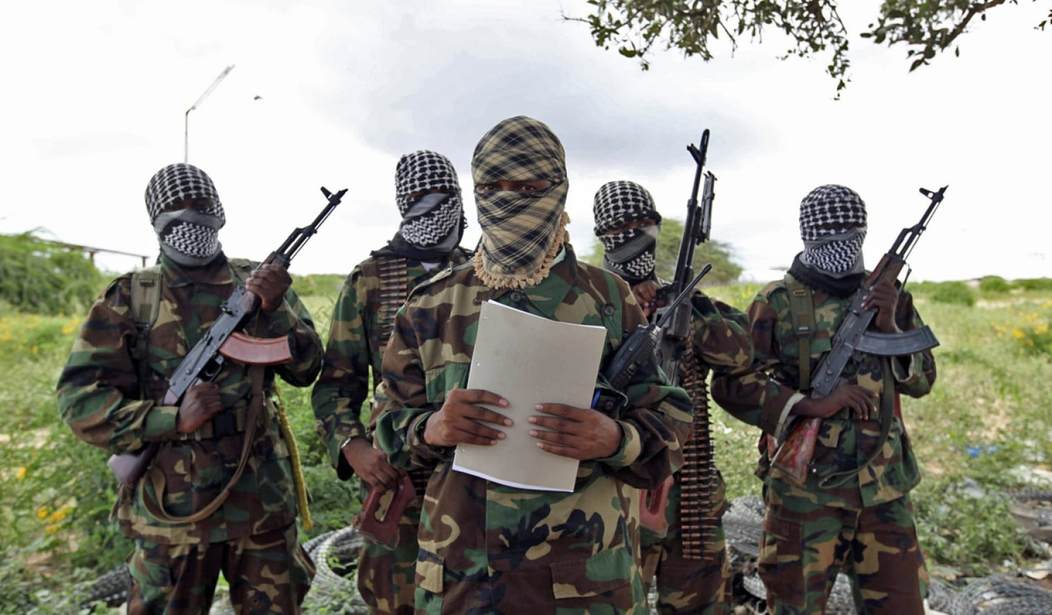WASHINGTON – Ambassador Thomas Graham, Jr., who as a veteran senior diplomat at the Arms Control and Disarmament Agency worked on decades of nonproliferation agreements, said Thursday that the world has entered an era of arms control that lacks reason.
He had advice for President Trump: “The first thing I think is important to understand is that [arms control] is not a negotiation over a building or a used car. It’s between two sovereign countries.”
Graham — who authored the treaty between NATO and the Warsaw Pact to end the Cold War and served six U.S. presidents from Nixon to Clinton – talked of the “classical” arms control of the 1980s. He pointed to the philosophies of Paul H. Nitze, a Cold War-era negotiator who believed the best approach is to “reach a narrow strip where both parties can stand comfortably and then try to steer U.S. policy.” The objective is not to take advantage of the other side, Graham said, but to find mutual benefits for both.
Today, Graham said, “we have something – I don’t know what it is, but it doesn’t seem to be based on reason or objectivity or any of those things, but more on the perceived political advantage and often for the purposes of propaganda.”
From Kennedy to Obama, arms-control negotiation was a “serious process,” he said, even with the likes of George W. Bush, an arms-control skeptic. Graham recommended reading the transcripts from the 1986 Reykjavík Summit, in which President Reagan met for two days with the Soviet Union’s General Secretary of the Communist Party Mikhail Gorbachev. Talks dissolved at the last minute, but the meeting helped set the stage for the Intermediate-Range Nuclear Forces Treaty between the United States and the Soviet Union. According to Graham, Reagan is the only president who truly believed in eliminating all nuclear weapons.
Graham, during his appearance at the Georgetown University Law Center, gave a truncated version of the talks between Reagan and Gorbachev in Reykjavík. According to Graham, Reagan initially wanted to eliminate all tactical nuclear weapons, and Gorbachev agreed, suggesting the elimination of all nuclear weapons. Reagan agreed with this, adding that if they go that far, the two sides should eliminate all ballistic missiles, as well. What caused the talks to break down at the last minute, Graham said, was the Strategic Defense Initiative, an anti-ballistic missile program that Reagan initiated to prevent missile attacks from other nations, most notably the Soviet Union. The SDI program, initiated in 1983, was known as “Star Wars.”
Graham said that the Soviets believed Star Wars was a cover for American space weapons to be used against them. Gorbachev suggested that SDI be kept in the laboratory, but Reagan believed that would dissuade Congress from ever funding the program. The two sides reached an agreement where SDI would remain in the lab for 10 years, and at that point, it could be deployed with mutual consent from both nations. But talks broke down in the eleventh hour.
“In a sense, it was a tragedy,” Graham said. “Reagan said, ‘You give all this up for one word: space. And you must not have really wanted an agreement to start with.’ Gorbachev said, ‘Well I did want an agreement, and I probably did more than I should to achieve what you want.’ And Reagan said, ‘I don’t know if we’ll ever have another chance to meet like this.’ And Gorbachev said, ‘I don’t know, either.’”
Graham called it a special example of classical arms control, driven by elements that no longer exist today. According to the ambassador, today’s negotiating landscape is dictated by military presence, and there’s no interest at the State Department or Defense Department in changing that.
“I don’t see it existing anywhere in Washington, and I don’t see how there can be any progress in it unless there’s a seat change with the president” and Russian President Vladimir Putin, Graham said.
He noted Secretary of State Rex Tillerson’s belief that the diplomacy of the past was futile.
“Well it did work, actually, under Clinton,” Graham said. “He had North Korea solved, and the W. Bush administration decided that because Clinton did it, and also they wanted to keep North Korea as the poster boy for missile defense, threw it in the trash can, and now we have a really, really, really dangerous situation in North Korea.”
Graham did admit that the U.S. always seems to get the raw end of the deal when talking with Russia. The ambassador said the U.S. signs treaties, gives up its weapons, Russia supposedly gives up theirs, and then there’s no dependable verification system to make sure Russia is holding up its end of the agreement.
Graham said the world faces two major threats that could end human civilization: nuclear war and climate change. His tone suggested he’s more optimistic about arms control than climate change, though “it’s important to be optimistic” on both. On nuclear weapons, there have been 70 years of success, he said, with near uses during the Cold War and in the Middle East. There’s also the issue of North Korea, which is relentlessly searching for the capability to strike the U.S.
Ironically, Graham said, if the world is going to save itself from climate change, the catalyst will be nuclear power.









Join the conversation as a VIP Member